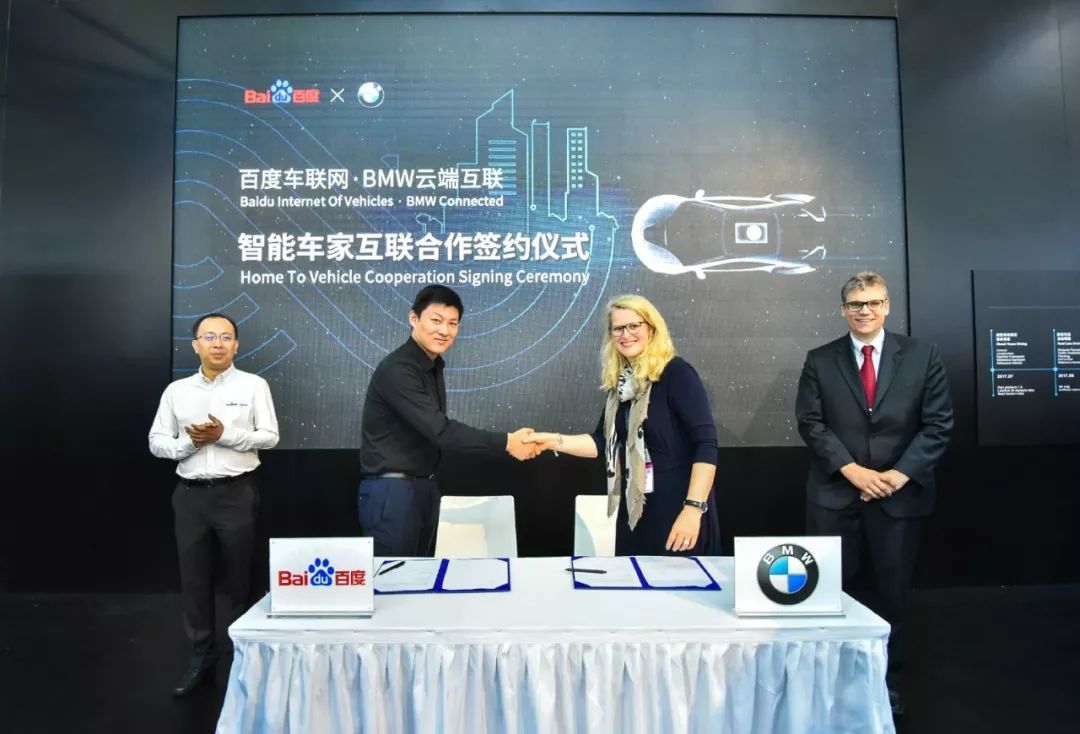Today’s Headlines for Baidu
There are two things that caught my attention. Firstly, I am curious about how Baidu and BMW will collaborate again, after their partnership in autonomous driving ended in 2016 due to “some differences in pace and philosophy”. Secondly, with the departure of Baidu’s former CEO and COO, Lu Qi, many people are wondering how Baidu Apollo will evolve in the post-Lu Qi era.
As for the collaboration with BMW, the two companies will develop intelligent in-car experiences starting with connected-car services. Users can give voice commands from home to carry out remote control of their vehicles, such as for remote-controlled ventilation, checking fuel consumption, and closing the doors. They can also access and control a series of operations, such as querying travel information stored in the cloud, planning routes, and checking traffic conditions.
Voice commands, remote control, planning routes… Looking at the introduction of Baidu Apollo’s dashboard product Xiaodu Car Life, it supports human-vehicle dialogue, facial recognition login, fatigue monitoring, intelligent safety, AR navigation, connected-car services, personalized services and content, etc.
Therefore, it can be said that the collaboration between BMW and Baidu is essentially a simplified version of Xiaodu Car Life. For Baidu, the positive impact of this collaboration is greater than the actual progress in business.
From a competitor’s perspective, Xiaodu Car Life and Alibaba’s Banma Zhixing Internet vehicle system are in direct competition with each other, with the difference being that Banma was able to link up the account system based on HMI OTA earlier. However, given Baidu’s software capabilities and the engineering abilities of Baidu’s automaker partners, this is not difficult to achieve. This year, a total of 8 models from 4 automakers have implemented Xiaodu Car Life, which can explain the situation.
For Baidu, Alibaba and Tencent, the most important thing is to quickly sign an international automotive giant, which will objectively serve as a technical endorsement for the former, attract more hesitant small factories to enter the ecosystem. Earlier, Alibaba signed with Ford, and now Baidu has signed with BMW, this has laid a foundation for more orders and market influence in the future.
Alibaba announced earlier that the number of vehicles using AliOS has exceeded 600,000, while Baidu is starting to scale at a rate of 8 models per year. Isn’t it time for Tencent to make a move?
Let’s talk about Apollo.
First of all, the well-known “Apollo” is the unmanned minibus that Li Yanhong has mentioned several times, which will begin small-scale trial operations in July of this year.
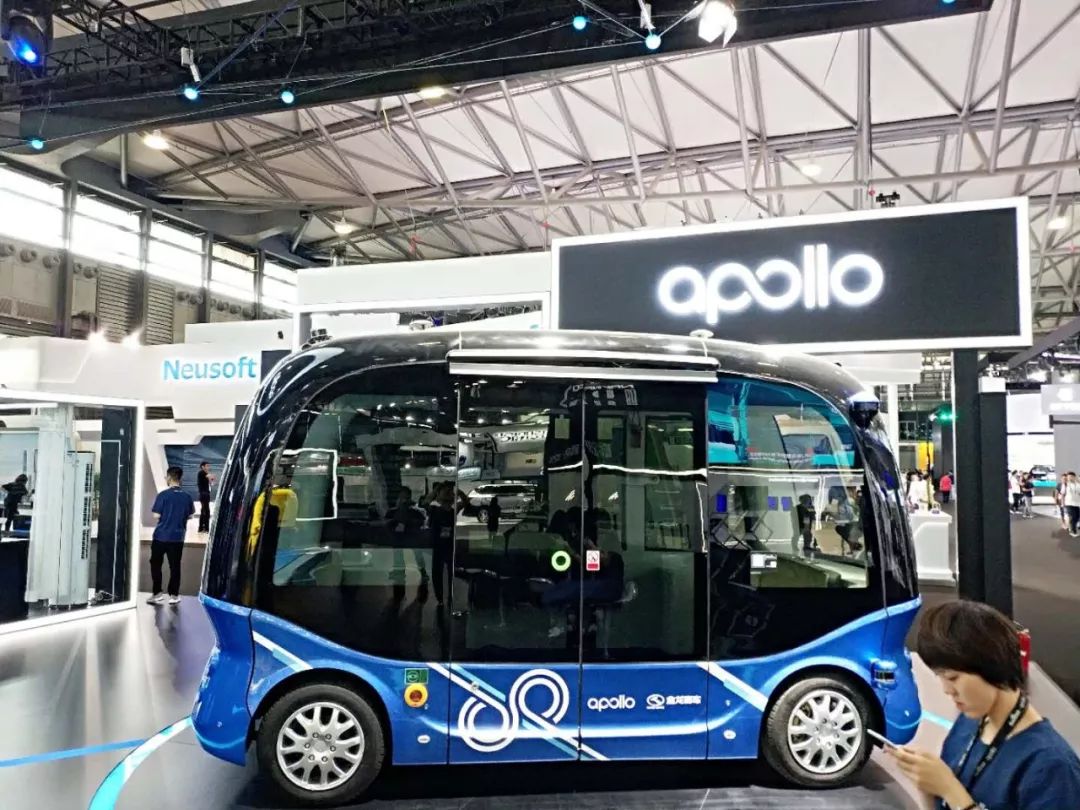
Let’s highlight the key points first: The hardware configuration consists of two GPS on the top layer, 1 rear 16-line LiDAR, 1 millimeter wave radar on each side of the second layer, a binocular camera in the middle, two 16-line LiDAR on the third layer, and multiple ultrasonic sensors and 1 front millimeter wave radar on the bottom layer. Together with Baidu’s high-precision map, it is basically feasible to achieve fixed-route low-speed autonomous driving in restricted scenarios such as scenic spots, factories, and parks.
Moving on, let’s take a look at this logistics truck that Apollo is collaborating with the autonomous driving start-up Xin Shi Qi. It is still low-speed autonomous driving in simple scenarios.
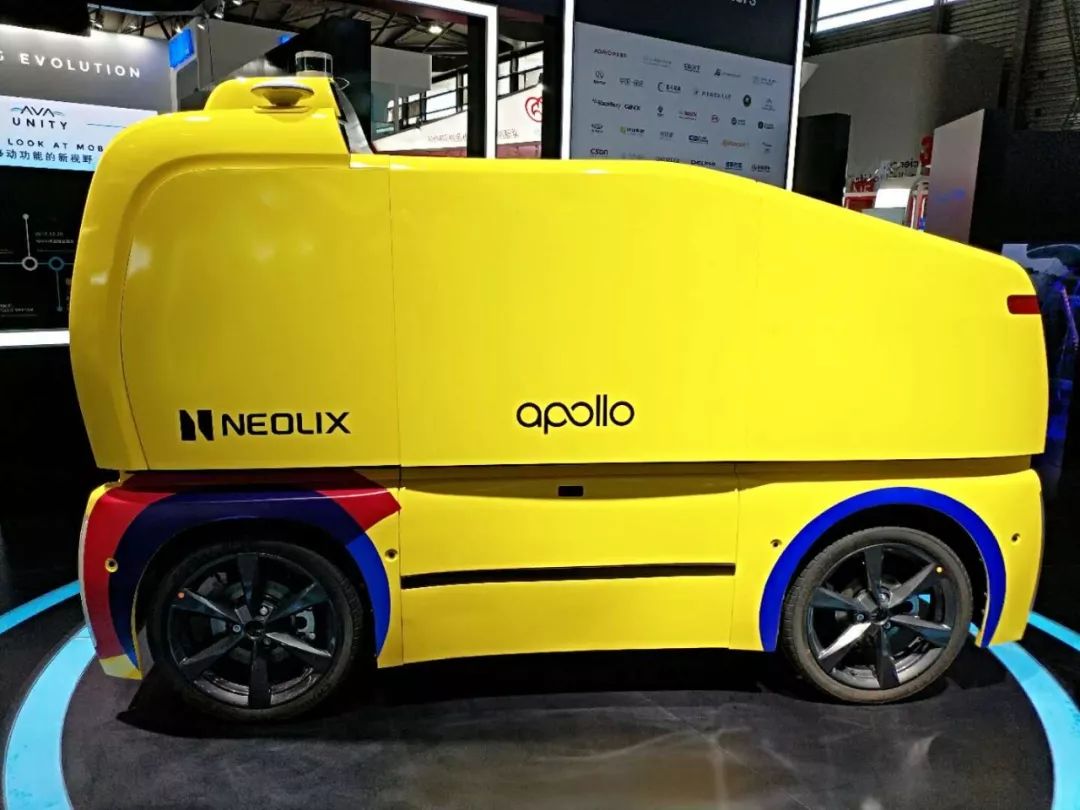
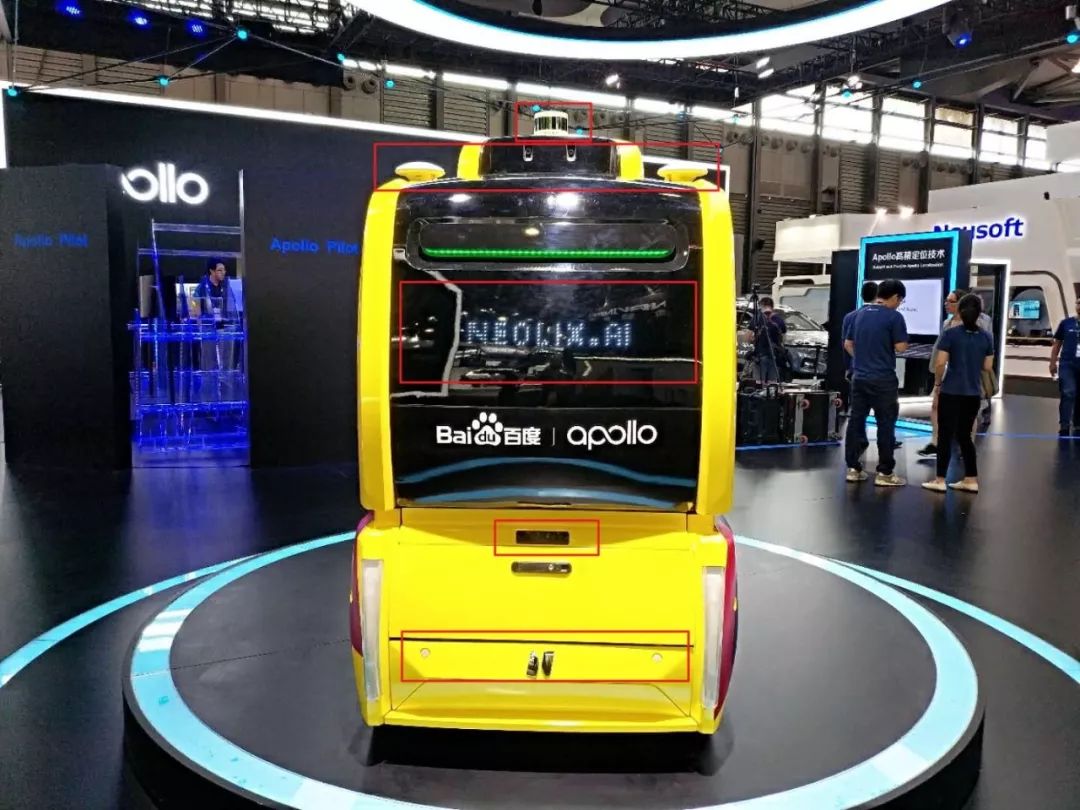
The top layer has one 16-line LiDAR. The second layer has 1 GPS on each side and a binocular camera in the middle. The third layer has a large screen for human-computer interaction, and 4 cameras that surround the body. The bottom layer features ultrasonic sensors that surround the vehicle. Compared to “Apollo”, it has some reduction in equipment, and a more camera-centered technology route. Similarly, due to the support of Baidu’s high-precision maps, low-speed autonomous driving in simple scenarios has met the technical requirements for commercialization.
(It should be noted that the above is not all of the Apollo landing cases, and Baidu has cooperated with different companies to launch corresponding products in fields such as passenger cars, semi-trailer trucks, and sweeping robots.)
In the above hardware solution, the computing unit is not mentioned. Baidu has a separate booth for its computing platform.
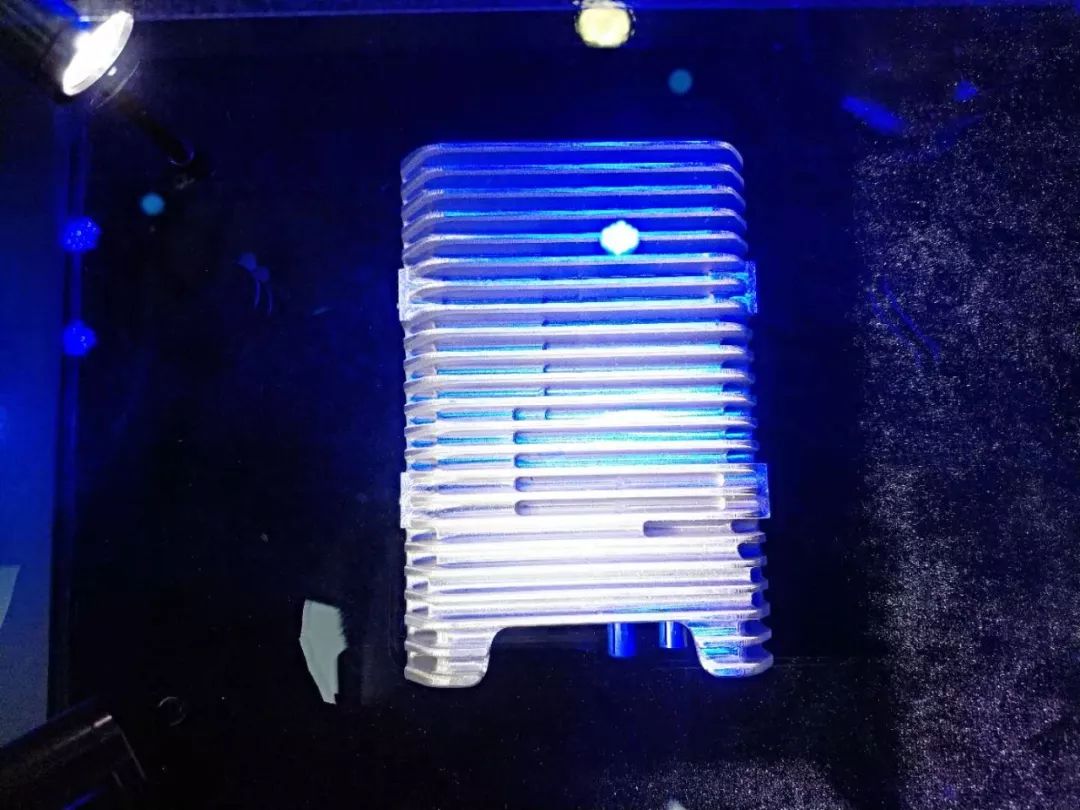
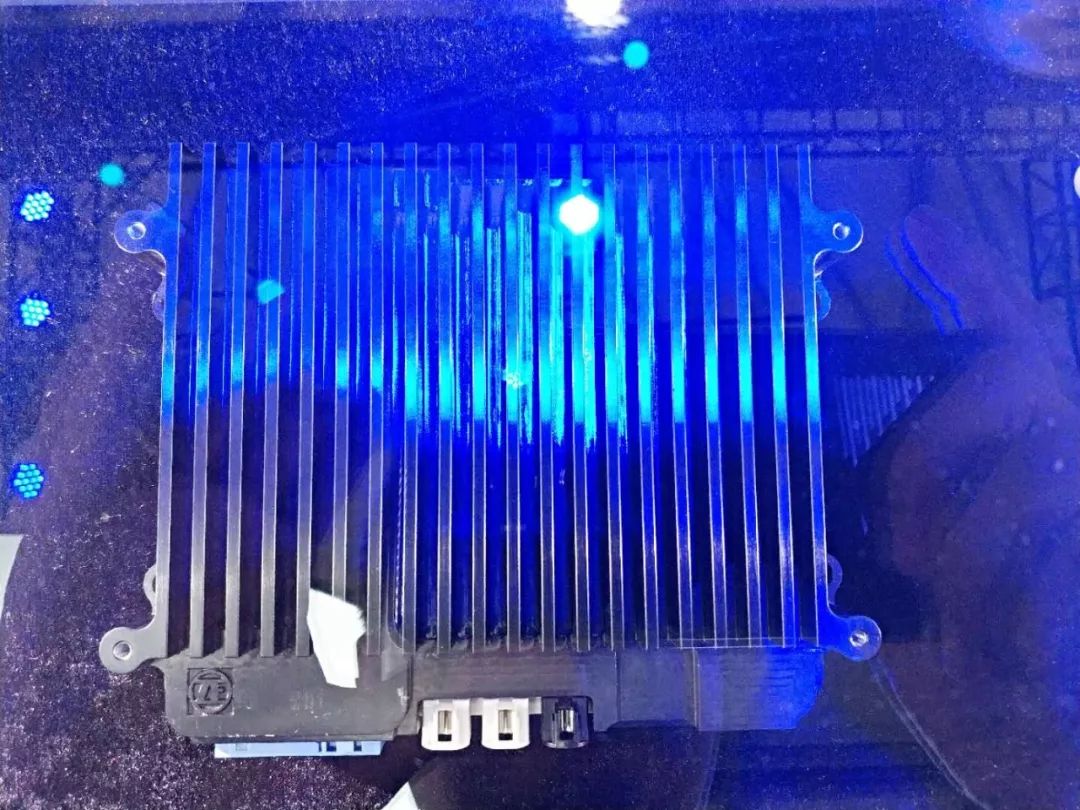
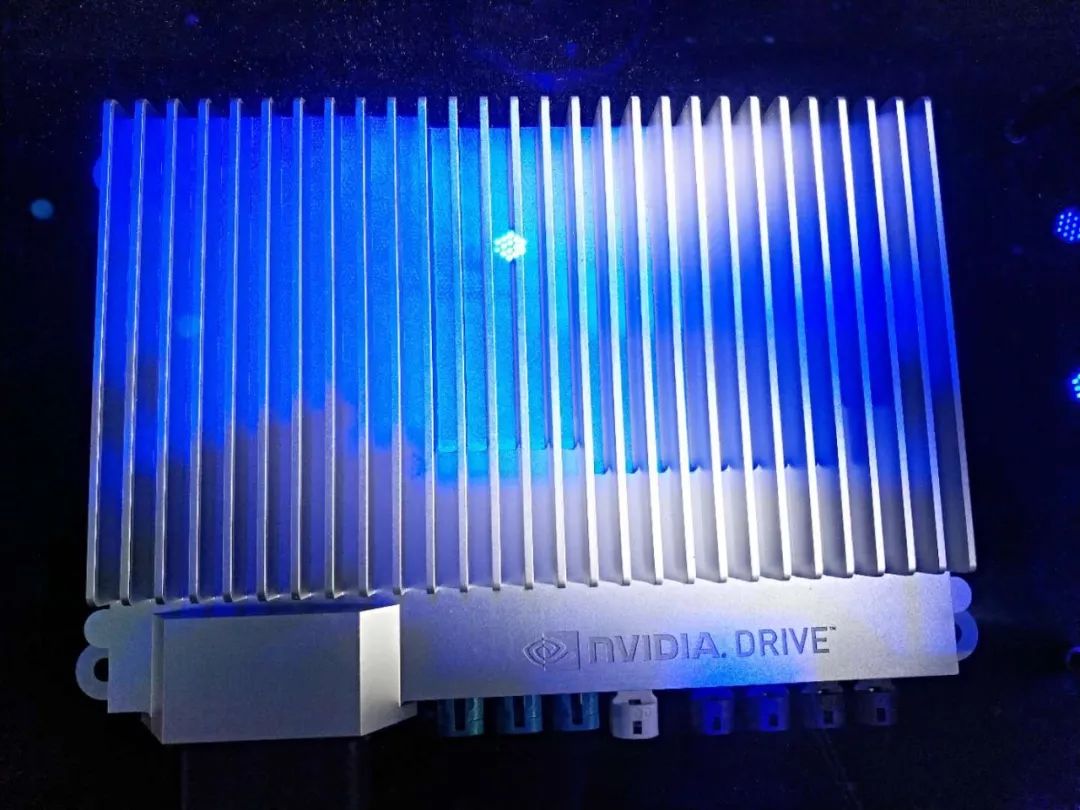 Baidu, in collaboration with three Tier 1 suppliers, has launched three computing units: the basic version, high-end version, and professional version of the ACU (Apollo Computing Unit). Each version has different computational capabilities and are produced respectively by Desay SV, Bosch, and NVIDIA.
Baidu, in collaboration with three Tier 1 suppliers, has launched three computing units: the basic version, high-end version, and professional version of the ACU (Apollo Computing Unit). Each version has different computational capabilities and are produced respectively by Desay SV, Bosch, and NVIDIA.
In addition, Baidu also showcased the Apollo car black box. As the name suggests, the black box can record and store sensor data and decision-making data for automatic driving, providing evidence or fault analysis data support for accidents.
Related to autonomous driving are Baidu’s Intelligent Map high-precision map platform and high-precision positioning technology, with the former being a major reason why many car manufacturers join the Apollo ecosystem. This is why Robin Li, Baidu’s CEO, said earlier that China’s high-precision map business in the future may be larger than Baidu’s current search business.
Finally, does the expression “car-home interconnectivity” in the announcement of the cooperation between Baidu and BMW leave you confused? Here, Baidu’s booth showcased a concept car model jointly developed by Baidu and Hyundai. The name is “Next-generation human-vehicle intelligent interaction system based on DuerOS for Apollo capability”, which supports car-home interconnectivity. This car’s front is equipped with an air conditioner, desk lamp, DuerOS intelligent speaker, air purifier… Baidu has connected the car with these devices. The ideal application scenario is to turn on the air conditioner and purifier on your way home. Therefore, in reality, Baidu’s car-home interconnectivity partnership at least includes BMW and Hyundai.
An acute question is: How does Baidu deal with this situation when General Motors and Waymo have invested more than 3 billion US dollars in L4 level autonomous driving commercialization?
Undoubtedly, L4 level autonomous driving technology has the most complex technical challenges and the greatest business values. However, we cannot deny the value of Baidu’s products that are currently available, which also promote the improvement of social efficiency and are the first step for autonomous driving towards commercialization.According to Apollo staff, Baidu will announce the details of Apollo 3.0 at the Baidu AI Developer Conference in July for L4 autonomous driving technology. In addition, auto-driving companies that cooperate with Apollo on the exhibition, including Neolithic, and the new car company “BYTON”, which announced cooperation with Baidu on local R&D of autonomous driving yesterday, will be exposed at the same time as the update of Apollo ecological cooperation partners in July.
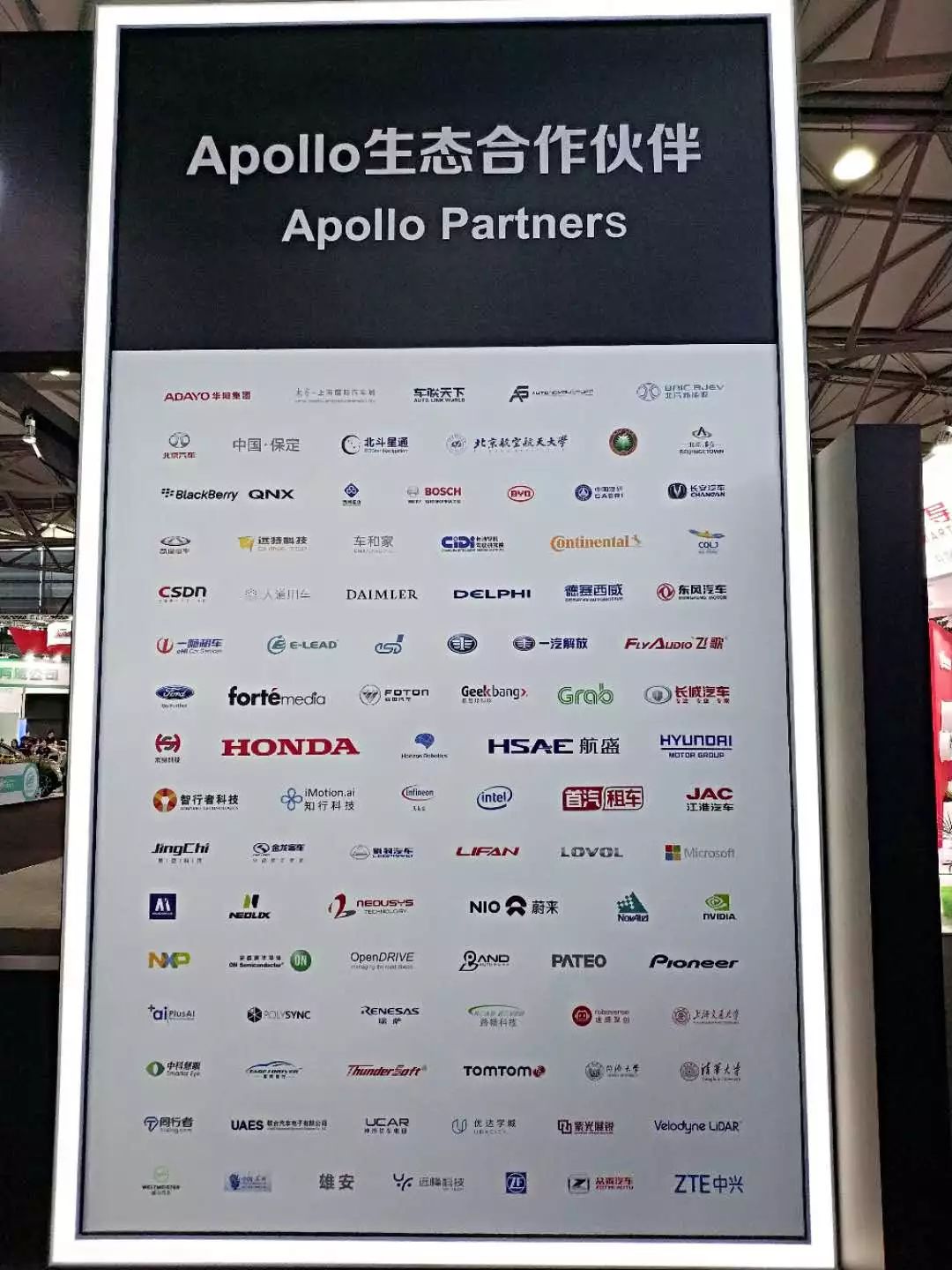
Finally, paste an existing list of Apollo ecological cooperation partners. Well, we need to look up at the L4 starry sky and step on the first step of commercialization.


-
How do you view the self-driving arms race stirred up by General Waymo?
-
Exclusive Interview | He Tao: The Story Behind The World’s First Commercialized Robotic Sweeper

This article is a translation by ChatGPT of a Chinese report from 42HOW. If you have any questions about it, please email bd@42how.com.
